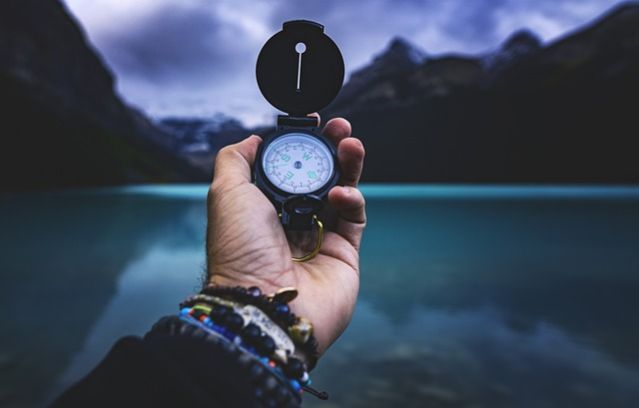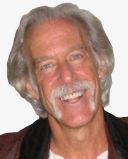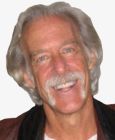Motivation
When the Search for a Sense of Purpose Turns on You
Purpose has benefits, but it can also become just another form of striving.
Posted May 2, 2024 Reviewed by Michelle Quirk
Key points
- There are real benefits to a sense of life-purpose—health, meaning, focus—but there are also drawbacks.
- Enjoying the world is as good a purpose as serving the world.
- Our fitful and purpose-driven world makes it hard to step away from the relentless pursuit of life-purpose.

Recently a friend of mine in her 60s declared that she was “over” the need for a sense of purpose in her life. This triggered in me both skepticism and envy because, on the one hand, I’ve devoted much of my career to helping people find passion and purpose, and, on the other hand, because I recently retired from that career, and the internal pressure to forge a renewed sense of purpose has begun feeling like just another to-do list item.
At first, I thought she was over just the sense of purpose that drives people to fulfill their personal potential—achieving goals, maximizing strengths, composing a life—and that she would now be turning her attentions toward a “higher” or more spiritual sense of purpose.
But my friend said she was over that as well, done with the general neediness and drive behind striving itself, whether on behalf of self or other. And despite my intellectual alarm at this idea—Is the sense of purpose something one can outgrow?—her disavowal of the driving force of purpose, and the fact that she seemed not unmoored but grounded, struck me as an enviable attainment in serenity and nonattachment, skills the aging process is insisting I learn.
Adapting to Changes
There’s great emphasis in the purpose literature on its health-giving benefits, its importance in guiding our energies and giving our lives meaning, and how it leads us to serve “the greater good.” But folks at the Greater Good Science Center at the University of California, Berkeley, suggest that purpose seems to have been selected for by evolution as a way to help humans work together, and, like all things that evolve, it has to be adaptable to changing environments, circumstances, and mindsets. “We cannot live the afternoon of life according to the program of life’s morning,” said psychologist Carl Jung, “for what in the morning was true will in evening become a lie.”
Back in my 30s, I read a book called The Path, by Laurie Beth Jones, about how to craft a personal mission statement, not just for one’s career, but one’s life. What I came up with was this: “My mission is to educate and model passion and authenticity for those searching for their sense of calling and vitality.” This captured (1) what actions I would take, (2) what purpose or values motivate those actions, and (3) who I’d be serving. And it served me well, for decades.
But in retirement, I find myself backing off the need (or desire) to consciously serve anyone with all my educating and modeling, or even make good on the supposedly primary developmental task of elderhood, which Jung called generativity. That is, helping the generations coming up behind me. But I’ve been doing that all along; half my career was spent in university settings.
Living One's Mission
This doesn’t mean I’m abandoning my mission. I’m just choosing to live it rather than teach it, though by most accounts living it is the best way to teach it. And it’s not that I’m bereft of a sense of purpose in this phase; it’s that my sense of purpose is changing, and I’m not so much retiring as reordering my priorities, and loosening my grip on the lifelong demand for results. I’m less interested in serving the world or changing the world than enjoying the world. Perhaps it’s the difference between “Why am I here?’ and “How am I here?”
It’s also dawning on me that enjoying life is as exalted a purpose—and every bit as aspirational and challenging—as any purpose devoted to career, community, or service. And as far as transcending the self goes, I’m happy just getting a little distance from (rising above, you might say) all my assumptions about what a passionate, productive, and meaningful life looks like, all the operating instructions I inherited for how to construct and maintain a proper sense of self.
A colleague of mine, Richard Leider, author of The Power of Purpose, says that purpose is composed of three ingredients: your gifts, passions, and values. But these drivers don’t have to be aimed at making a living, crafting a career, changing the world, or being of service to the greater good. If you have a gift and passion for painting, and you value creativity, you could spend all your time painting alone in a room and never show your work to a soul and still have a life propelled by purpose.
Similarly, when I apply Leider’s principle to my own nascent retirement, I see that my gifts, passions, and values all coalesce around the activities in which I now find myself spending the bulk of my time: writing, relationship-building, wellness, music, adventure, the appreciation of nature, and regular gratitude for this precious and fleeting life. And though these activities may spin off inspiration or usefulness for others, that’s welcome but ancillary. Bettering humanity is not my intention or purpose.
Besides, what counts as a contribution to the world and, by extension, a good-enough purpose? Are monks and nuns who sit in caves meditating and praying for humanity any less impactful on the greater good, any less socially useful or involved in moral action, than those who sit at the computer day after day cranking out manifestos, or heading down to the sit-in with placards?
Perhaps ideally, a sense of purpose should be deeper than any individual goal or intention or calling. Not so much a reason for doing what you do as a reason for being, what the French call your raison d’etre, and what the business world calls your why. Some overarching principle or ideal you devote yourself to: creating beauty, empowering people, cultivating relationships, creating solutions, encouraging self-awareness, stewarding the Earth.
And these deeper purposes don't have singular strategies, but multitudes of them, and won’t end even if your work does. A few years ago, I consulted with a woman who was convinced she was called to quit her job, move to LA, and become an actress—but wanted a “reality check.” It turns out the call wasn’t to quit her life and move to LA to be an actress; it was to be more expressive in her life. Her mind simply conjured up what she thought was the epitome of an expressive life: being an actress. I suggested an assignment: Take six months and experiment with the following question: “In how many ways can I practice being more expressive in my life?”
Neal Allen, author of Better Days, writes
“I’m constantly told I’ll be happier if I find meaning, or purpose, or value, in my work-life. Be of service. Establish a purposeful life. Set intentions and stick to them. Better yourself. But maybe we’ve got it backwards, and our point isn’t productivity, communication, agreement, social welfare, but satisfaction. Attending to productivity can be a distraction from love and fascination. Which would you rather be? Of value to the world through achieving your purpose, or basking in a persistent field of love? What if appreciation of the world as it is—a form of contentment that is self-contained—is my purpose?”




